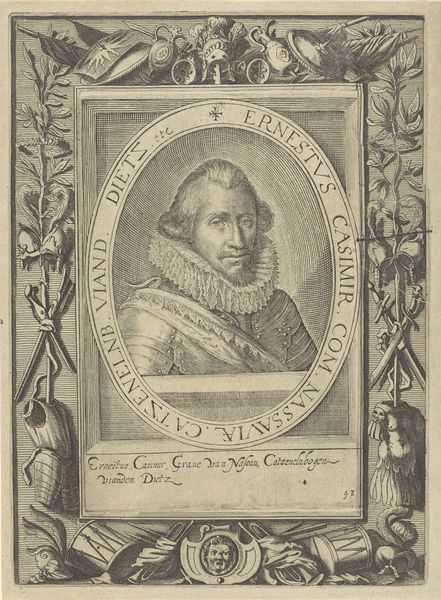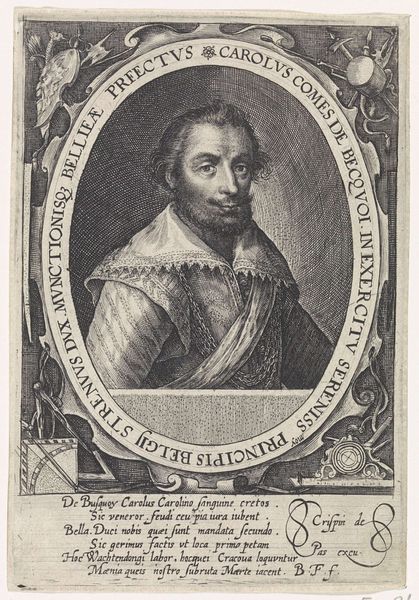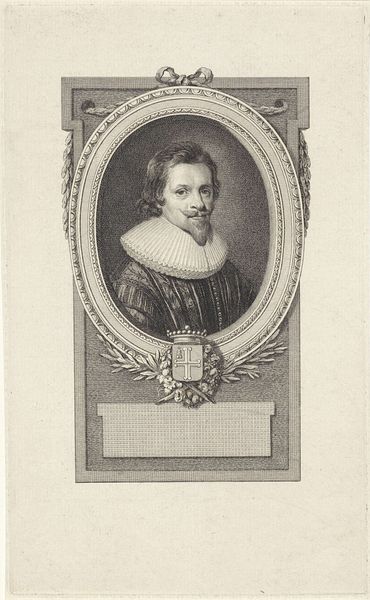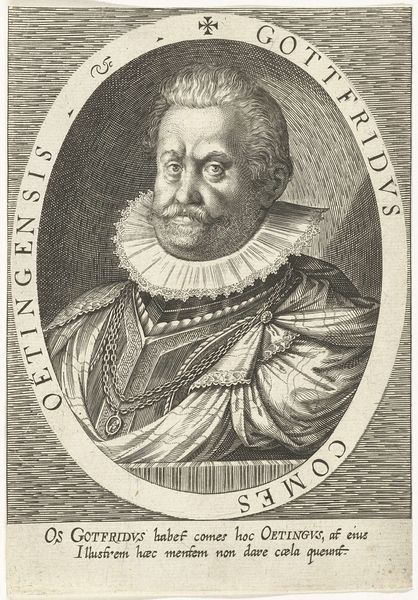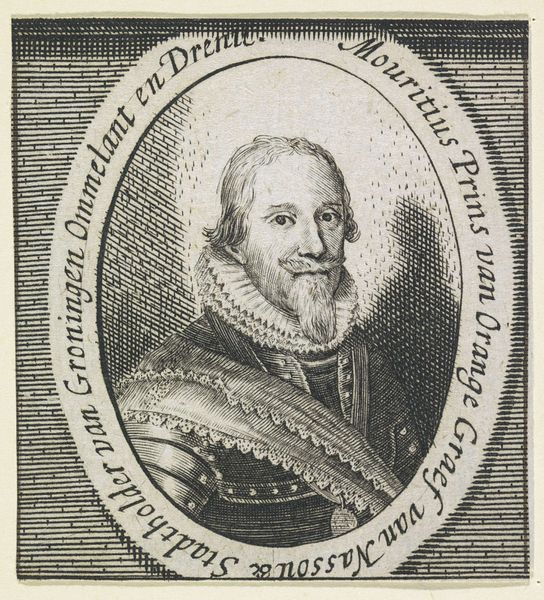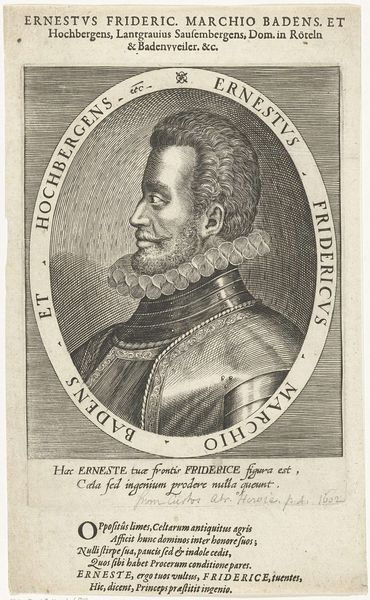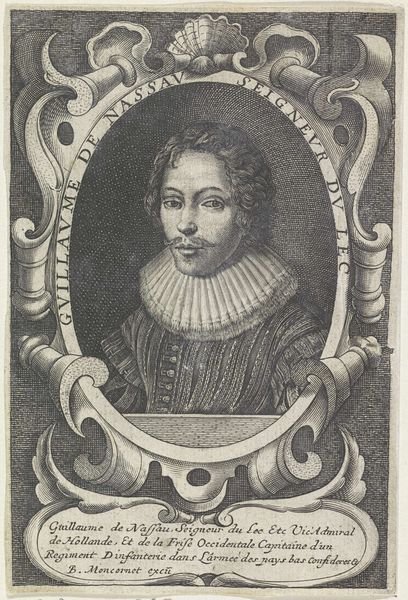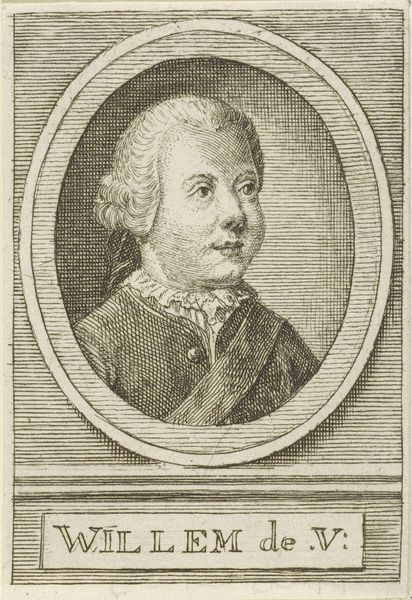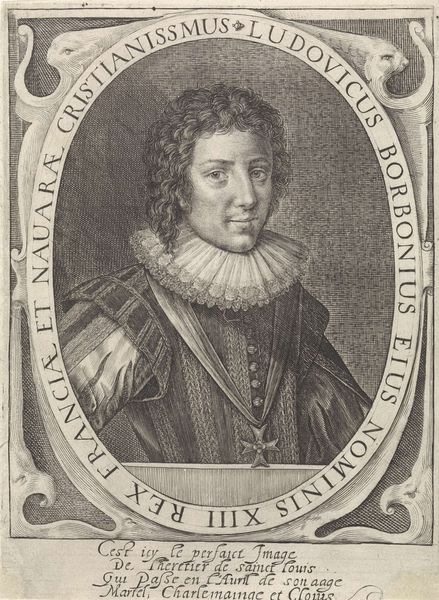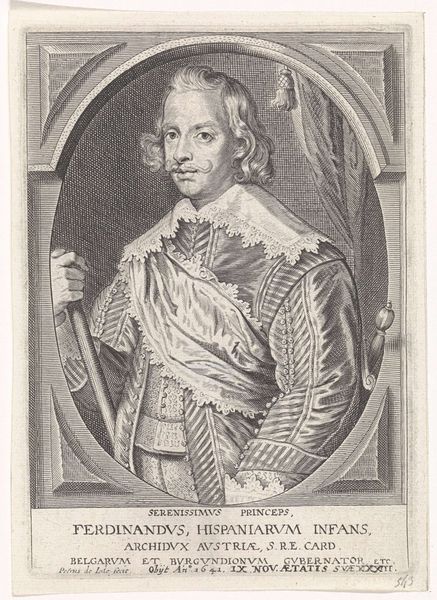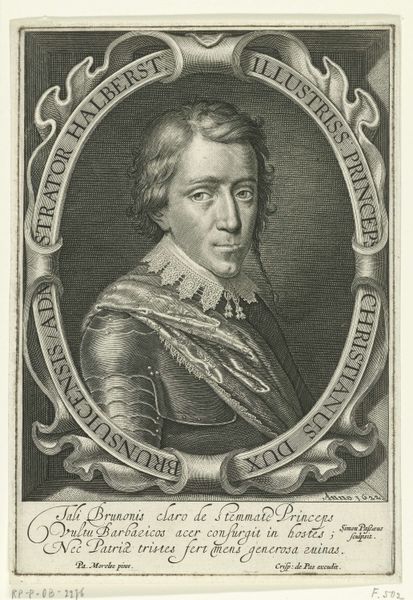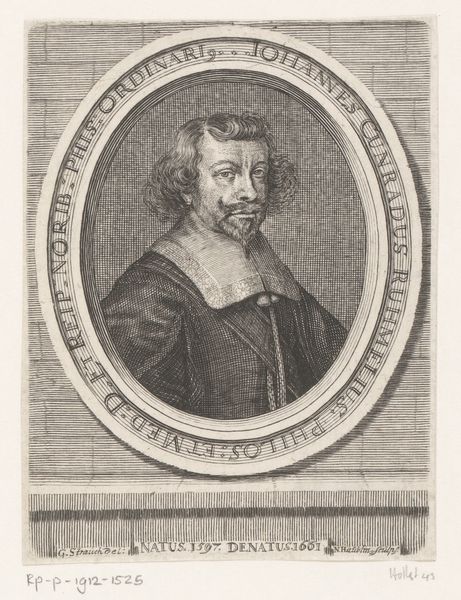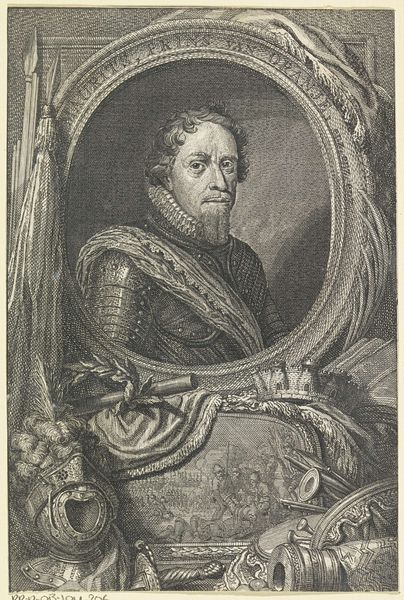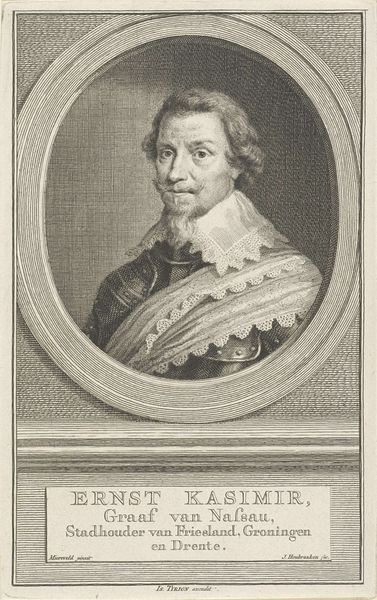
print, engraving
#
portrait
#
baroque
# print
#
history-painting
#
engraving
Dimensions: height 67 mm, width 63 mm
Copyright: Rijks Museum: Open Domain
Editor: Here we have a 17th-century print, an engraving, actually. It's titled "Portret van Ernst Casimir, graaf van Nassau-Dietz," artist is unknown and it's here at the Rijksmuseum. It looks rather serious, very official. What stands out to you about it? Curator: Well, beyond its aesthetic qualities, this portrait provides insight into the social and political functions of art in the 17th century. Think about it: who was Ernst Casimir? What role did prints like these play in shaping public perception? Editor: He was a count… and a stadtholder. So, prints were like... propaganda? Curator: Exactly. This isn't just a picture, it’s carefully crafted imagery reinforcing power. Notice the details - his attire, the framing text. These details signal authority. This image, through its circulation, would help establish and solidify his public image and political legitimacy. Editor: The text circles the portrait, almost like branding. It feels very deliberate. Curator: Indeed. And consider the location, the Rijksmuseum. The very act of displaying this work in a national museum frames it as a crucial part of Dutch history, imbuing it with even more significance than perhaps originally intended. What does it say about the choices the museum is making? Editor: So, this print is more than just a portrait; it’s a historical document revealing social and political dynamics. I hadn't thought about that. Curator: Precisely. Examining it with this in mind unlocks so many new perspectives. We can better see art's influence in social power structures. Editor: Definitely changes how I see art's purpose beyond the purely aesthetic. Thanks!
Comments
No comments
Be the first to comment and join the conversation on the ultimate creative platform.
